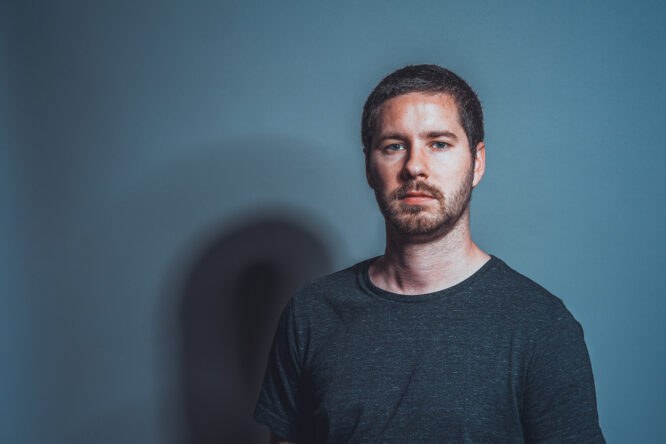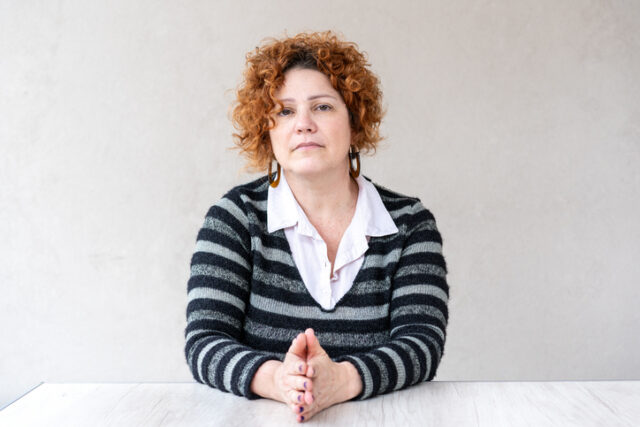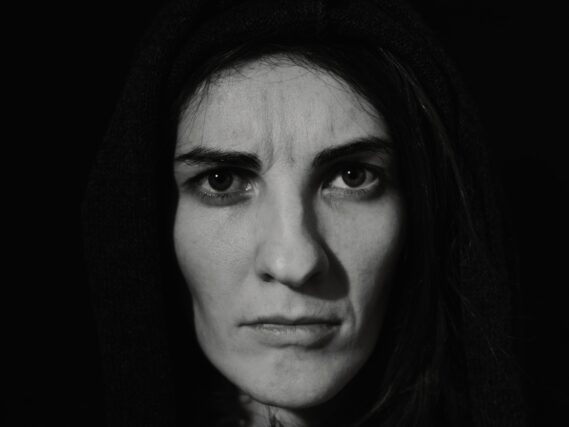Being the chill one can feel like a badge of honour.

You don’t get caught up in drama, you let things slide, and people probably say things like, “You’re just so easygoing.” However, sometimes, that laid-back energy isn’t calm, it’s numb. A lot of people who grew up in unpredictable, tense, or emotionally overwhelming environments learned to be chill because it was safer than being anything else. If you relate to these signs, your chill might be less about your personality and more about how you learned to survive.
1. You never know what you actually want.

You’re great at going with the flow, but only because you’re not even sure what your own preferences are. You’d rather let someone else choose the restaurant, the movie, and the weekend plans because deciding for yourself feels weirdly risky or like too much pressure.
This isn’t just indecisiveness. It’s what happens when you’ve been trained to suppress your own needs to keep other people happy. Eventually, you stop checking in with yourself at all, and suddenly, being “chill” just means being disconnected from what you want.
2. You never want to be a burden.

Even when you’re struggling, your first instinct is to downplay it. You might say things like “It’s fine, not a big deal” or “I didn’t want to bother anyone.” You think being low-maintenance makes you easier to love, but it also makes it harder for anyone to really see or support you. This habit often forms in environments where showing neediness led to guilt, rejection, or shame. So you learn to present as chill, independent, and unbothered because the alternative never felt safe.
3. You don’t get mad, even when you should.

You tell yourself you’re just “not an angry person,” but truthfully, you’re uncomfortable even recognising when you’ve been hurt. You let things slide that actually crossed a line because confrontation feels terrifying, and you’d rather just absorb it than speak up.
People who grew up walking on eggshells often learn that anger leads to conflict, and conflict leads to emotional fallout. So they mute their anger completely. Being chill becomes a shield, but it also blocks you from setting real boundaries.
4. You laugh things off instead of talking about them.

When something awkward or painful happens, your first move is to make a joke or brush it off. Humour becomes your go-to defence, even when you’re actually hurt or uncomfortable. You don’t want to be seen as dramatic, so you pretend it didn’t sting. This pattern can make people think you’re emotionally bulletproof, when really, you just learned to hide pain behind a smile. It keeps the peace, but it also keeps people from knowing the real you.
5. You find emotionally intense people overwhelming.

When someone else is fully expressing their feelings, whether that’s sadness, anger, or excitement, it makes you want to shrink back. You’re not sure how to respond, and part of you might even judge them a little for being “too much.” This isn’t about being better at handling things. It’s about being emotionally shut down. You’ve had to stay composed for so long, raw emotion feels unfamiliar or even threatening. You’re not more chill; you’re just more detached.
6. You apologise when you haven’t done anything wrong.

Your default is to say sorry, even when something isn’t your fault. Someone bumps into you? You apologise. You express a need? You immediately follow it with, “Sorry, I know this is probably annoying.” You pre-emptively smooth everything over. That habit usually comes from being conditioned to avoid tension at all costs. Being “chill” becomes another word for being hyper-aware of everyone else’s emotions and trying to manage them so you don’t become the problem.
7. You downplay your achievements or strengths.

When people compliment you, you brush it off. When you succeed, you pass the credit. You don’t want to come across as arrogant or attention-seeking, so you act like it’s no big deal, even when it is. This is self-protection rather than humility. If you were taught that taking up space was dangerous or selfish, then acting chill is your way of keeping things “safe.” In the long run, though, it can stop you from owning your worth at all.
8. You avoid decisions that might create tension.

Whether it’s ending a relationship, asking for a raise, or saying you don’t like something, you wait and wait… and then usually just let the situation drag on. Making a move that could upset someone else feels too heavy, so you don’t. This creates the illusion that you’re easygoing, but inside, you’re often full of stress, self-doubt, and frustration. You’ve been conditioned to believe that conflict is worse than discomfort, so you choose discomfort every time.
9. You feel guilty when you rest or slow down.

You pride yourself on being unbothered and adaptable, but you also find it hard to relax. When things are calm, you’re secretly restless. You feel like you should be doing something, helping someone, proving your usefulness in some way. That’s not chill; it’s hypervigilance. If your nervous system is wired for survival, rest doesn’t feel natural. Your body might be still, but your brain’s still scanning for potential problems to fix before they explode.
10. You rarely let people see the real you.

Your relationships stay easy, surface-level, drama-free, but also emotionally distant. You keep things light, avoid anything too deep, and hide the messier parts of yourself. Vulnerability feels unsafe, so you stay in “fun friend” mode all the time. People might think you’re super balanced or emotionally mature, but it’s often just a carefully built persona that helps you feel in control. Letting someone in is scary, especially when you’ve been hurt for doing that before.
11. You minimise your own emotions.

When you do feel something big like sadness, anger, or fear, you’re quick to downplay it. You tell yourself it’s not a big deal, someone has it worse, or you’re just being silly. You rationalise your feelings instead of feeling them. That’s not calm; it’s emotional disconnection. You’ve learned to treat your feelings as a problem to solve or avoid, instead of something you’re allowed to have. In the long run, it destroys your ability to even recognise what’s going on internally.
12. You pride yourself on not needing anyone.

“I’ve got it.” “I’m fine.” “I don’t really need help.” These are your go-to lines. You think being independent means you’re strong, but deep down, you might just not know how to be held, supported, or cared for without flinching. Self-sufficiency is usually a good thing, but when it’s this extreme, it’s often rooted in fear. If needing other people has led to disappointment or rejection, you learn to stop needing altogether. You call it chill, but it’s actually just lonely.
13. You always prioritise keeping the peace.

You don’t rock the boat. You don’t challenge anyone. You’d rather stay silent than risk a disagreement. On the surface, it looks like you’re just low-maintenance, but underneath, you’re constantly managing other people’s comfort at the expense of your own.
This habit usually forms in homes where emotional blow-ups were common or unpredictable. You adapt by becoming “easy” so you’re never the reason someone gets upset. However, that also means you’re not really showing up as your full self.




